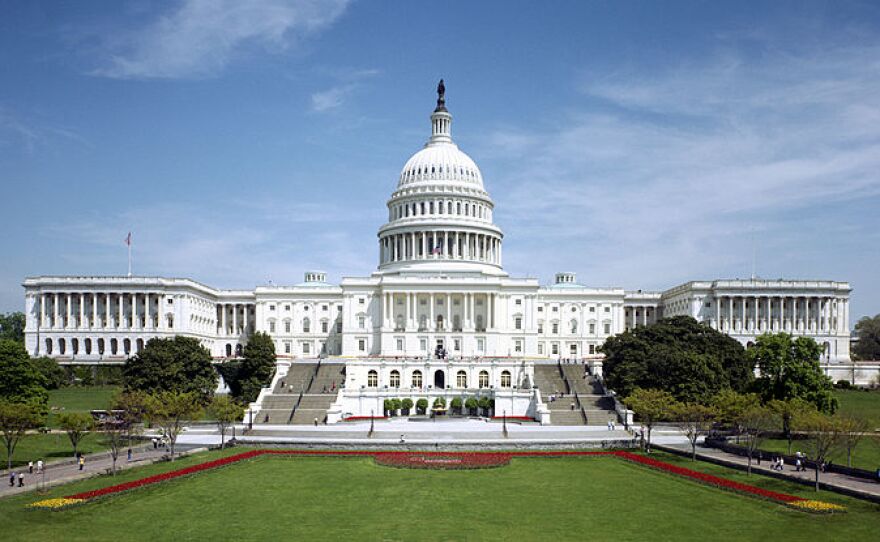On Thursday, a compromise was struck in the hopes of winning GOP support to pass the comprehensive immigration bill in the Senate and sweeten its chances in the House.
Half of the bipartisan group of Senators, who originally crafted the bill, were joined by Republican Sens. John Hoeven, N.D., and Bob Corker, Tenn. to draft an amendment, which they are accurately calling a “border surge” plan.
The amendment includes adding 20,000 more Border Patrol agents, an additional 700 miles of fence (currently at 650), and $3.2 billion in technological upgrades. All of which would need to be in place before any immigrant living in the United States illegally could apply for a green card.
Lawmakers believe the surge would cost around $30 billion. That's a lot. But not as much as $900 billion, which is a Congressional Budget Office estimate for how much the Senate reform proposal would reduce the federal deficit.
Democrat Sen. Chuck Schumer ( D-N.Y.), a member the gang of eight, worked to craft the new amendment and told NBC News this "answered every criticism" of the legislation.
The upgraded bill has yet to woo some of the stauncher opponents of the bill. Via, CBS: "Under this legislation, amended or not, amnesty will occur," said Sen. Jeff Sessions, R-Ala. "It will be first," with only a "promise of the future enforcement."
The heart of the argument is why should the U.S. reform its immigration policies if its border is not secure enough to ward off those who continue to cross illegally?
But what the amendment doesn’t solve are the ongoing questions currently facing border security.
As a nation we already spend more on border enforcement than drug enforcement, the Bureau of Alcohol, Tobacco, Firearms and Explosives and the FBI combined. Yet, our ways of measuring “effectiveness” in border secuirty are convoluted and inaccurate. Our border patrol staffing, at its current levels, is arguably bloated. Drones have yet to prove their financial worth.
And, many of the problems currently plaguing the border have nothing to do with immigrants or the Mexican drug cartels. Remember sequestration? In Arizona, agents are finding creative ways to cut costs. One suggestion is carpooling.
But even if the new bill passes through the Senate it still faces an uphill battle in the Republican controlled House. With another round of compromises, $30 billion might sound cheap.







